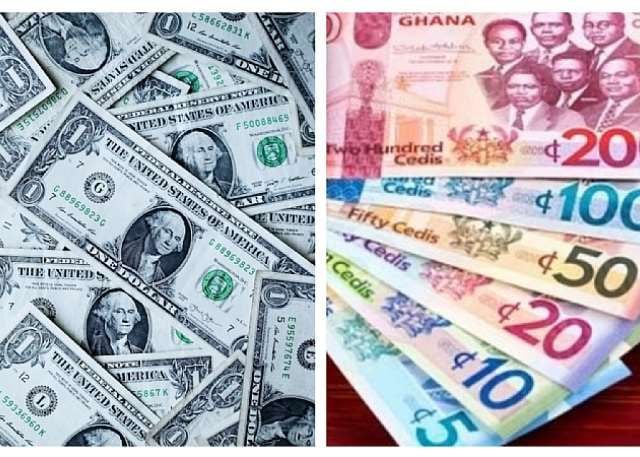The Ghanaian cedi experienced a significant depreciation against the US dollar on September 8, 2025, crossing the GHS13 threshold on the forex market. This marked a new low for the local currency, reflecting ongoing economic challenges and pressures on the foreign exchange market. Across various segments of the market, the cedi exhibited a range of exchange rates, indicative of differing accessibility and transaction costs. At forex bureaus, commonly used by individuals and small businesses, the cedi traded at an average selling rate of GHS13.05 per US dollar, considerably higher than the interbank rate offered by the Bank of Ghana. This discrepancy highlights the premium charged by forex bureaus due to factors like operational costs and market dynamics.
The interbank market, primarily used by large financial institutions and corporations, witnessed a slightly more favorable rate for the cedi, trading at GHS11.97 per US dollar for selling transactions. This difference underscores the tiered nature of the foreign exchange market, where larger players often benefit from preferential rates. Data aggregated by Cedirates.com, a platform tracking currency fluctuations, provided a market-wide overview, placing the average selling rate of the cedi at GHS12.45 per US dollar. This consolidated view represents a midpoint between the interbank and forex bureau rates, reflecting the broader market sentiment towards the cedi’s declining value.
Other major international currencies also saw their value appreciate against the weakening cedi. The British pound sterling traded at an average selling rate of GHS16.74 at forex bureaus, reaching as high as GHS16.19 on the interbank market. Similarly, the euro climbed to an average selling rate of GHS14.53 at forex bureaus and GHS14.05 on the interbank market. These trends suggest a broader weakening of the cedi not only against the US dollar but also against other major global currencies, signaling potential concerns about the Ghanaian economy’s overall stability and its attractiveness for foreign investment.
Remittance services, a vital channel for inflows of foreign currency into Ghana, offered slightly more competitive exchange rates compared to forex bureaus. Platforms like LemFi and Afriex, specializing in international money transfers, provided rates of GHS12.10 and GHS12.04 per US dollar, respectively. For the British pound, these platforms offered rates around GHS16.10, while the euro traded around GHS14.00. The marginally better rates offered by these remittance services likely stem from their high transaction volumes and streamlined digital operations, enabling them to offer slightly more favorable terms to customers.
The exchange rate applicable to digital subscriptions further highlighted the layered nature of the foreign exchange market. For services like Netflix, Spotify, and Apple Music, where payments are often processed through international card networks like Visa and Mastercard, the cedi’s value hovered between GHS12.89 and GHS13.00 per US dollar. This rate, closer to the forex bureau rate, suggests that these transactions are subject to different exchange rate mechanisms compared to remittance transfers or interbank transactions. This variation underscores the complexity of the foreign exchange landscape and the influence of different payment channels on the effective exchange rate experienced by consumers.
In summary, the Ghanaian cedi faced significant downward pressure against major international currencies on September 8, 2025. This depreciation was evident across different segments of the forex market, with varying exchange rates reflecting factors like transaction volume, operational costs, and market access. While the interbank market offered a more favorable rate for the cedi, forex bureaus and digital subscription platforms reflected higher exchange rates. Remittance services provided a slightly more competitive option for international transfers, highlighting the influence of specialized platforms on the overall foreign exchange landscape. The weakening of the cedi raises concerns about the health of the Ghanaian economy and its ability to attract and retain foreign investment. Ongoing monitoring and potential intervention strategies will be crucial to address the challenges posed by the cedi’s depreciation and maintain stability in the foreign exchange market.














